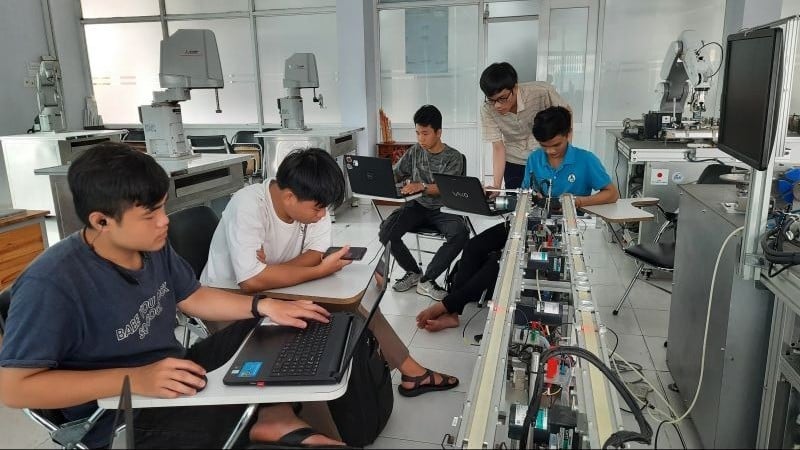
Vietnam in general and Ho Chi Minh City in particular are not out of this trend when economic and industrial sectors are all aiming to digitize processes, optimize resources, and improve labor productivity.
Experts say that human resources in the digital age must be able to work in a global and digital environment, and adapt quickly to changes in technology. Therefore, training high-quality human resources has become an urgent task, in order to meet the requirements of the modern labor market, while creating a solid foundation for the country's sustainable development.
To improve the quality of training, improve the quality of human resources in the digital transformation period and promote internationalization, universities have been proactive in updating and integrating new technology into both teaching and scientific research.
Dr. Dinh Thi Thu Hong, University of Economics Ho Chi Minh City.
To become a locomotive for innovation in Vietnam and an international training center, the city needs to focus on training high-quality human resources associated with internationalization. According to Dr. Dinh Thi Thu Hong, University of Economics Ho Chi Minh City, to improve the quality of training, improve the quality of human resources in the digital transformation period and promote internationalization, universities have been proactive in updating and integrating new technology into both teaching and scientific research.
Some schools have built digital laboratories, information technology application centers and research cooperation projects with leading domestic and foreign enterprises. This allows students not only to study theory but also to have the opportunity to practice and experience advanced technologies, from data management to statistical analysis and software development.
In the context of globalization and transition to a knowledge-based economy, high-quality human resources have become the core factor determining the competitiveness and sustainable development of large cities.
Ho Chi Minh City, the country's leading economic, financial and scientific-technological center, is entering a new development phase as its urban space is expanded through the merger with the former provinces of Binh Duong and Ba Ria-Vung Tau.
This expansion not only creates opportunities to form a linked urban-service-industrial region, but also poses an urgent need to restructure and improve the quality of human resources, especially digital human resources.
However, it is necessary to frankly admit that the big challenge is the gap between the demand for digital human resources and the ability of the current higher education system to meet it. One of the core limitations is the lack of connection between the training system and the actual needs of businesses.
The education programs in many universities and colleges still focus on theory and exams, while not paying much attention to practical skills and adaptability in an international environment. As a result, many businesses report having to retrain new employees because their professional skills do not meet job requirements.
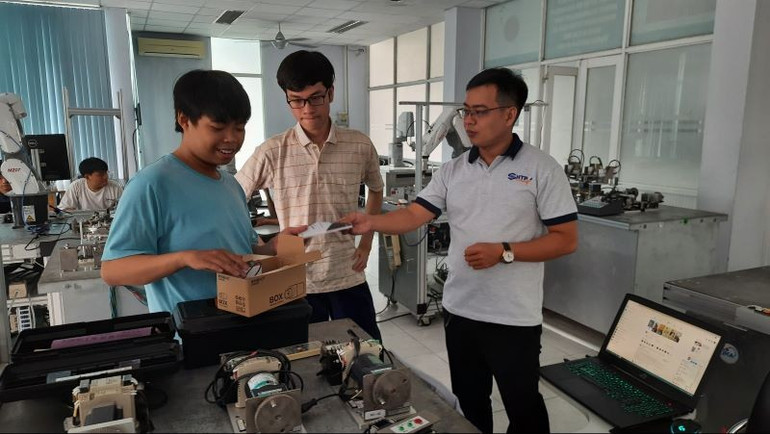
According to the Ho Chi Minh City Center for Human Resources Demand Forecasting and Labor Market Information (FALMI), in 2025 alone, Ho Chi Minh City needs to add about 330,000 new workers, most of whom are in service industries requiring specialized skills such as information technology, finance-banking, logistics, e-commerce, etc.
Experts say that to overcome this situation, Ho Chi Minh City and related units need to have breakthrough solutions, including fundamental innovation in higher education, building an effective cooperation mechanism between schools, businesses and the government, and implementing a skills development strategy suitable to the requirements of the digital economy and international integration.
At the same time, apply the international occupational skills standards framework to increase transparency and integration of human resources. Invest heavily in digital skills and innovation capacity, considering this as the main driving force for digital economic development, as well as develop lifelong learning policies and support mechanisms for upskilling/reskilling to ensure long-term adaptability of the workforce.
Dr. Nguyen Thi Luu An, Thu Dau Mot University and colleagues said: Forming a training-research-innovation ecosystem, where universities play a core role, is a prerequisite to meet the challenges and opportunities of the digital age, knowledge economy and globalization.
In particular, higher education institutions need to restructure their training programs towards integrating digital skills programs, data analysis, service management, critical thinking skills; increase business integration courses, as well as promote competency assessment according to international occupational standards...
Meanwhile, Dr. Dinh Thi Thu Hong emphasized: The requirements for high-quality human resources in the digital age and international integration are not only professional knowledge but also proficiency in digital skills, data thinking, security, and AI.
At the same time, one must have a global mindset, be able to work in a multinational environment, be able to self-study, continuously update rapidly changing knowledge in the digital age, and participate in the global innovation ecosystem...
Therefore, policies need to be geared towards implementing a digital human resource development strategy, focusing on the fields of information technology, artificial intelligence, data science, cyber security, financial technology, technology and innovation. In addition, it is necessary to invest in digital infrastructure for education through the development of digital universities, open data systems, and online training platforms integrated with AI.
Universities need to have a comprehensive internationalization and digital transformation strategy in training, research, and administration; build a startup ecosystem and focus on innovation activities, so that each school is an "innovation hub", connecting students-businesses-investors...
Source: https://nhandan.vn/nguon-nhan-luc-so-nhan-to-quyet-dinh-trong-ky-nguyen-so-post923357.html



![[Photo] Panorama of the 2025 Community Action Awards Final Round](https://vphoto.vietnam.vn/thumb/1200x675/vietnam/resource/IMAGE/2025/11/15/1763206932975_chi-7868-jpg.webp)

![[Photo] General Secretary To Lam receives Vice President of Luxshare-ICT Group (China)](https://vphoto.vietnam.vn/thumb/1200x675/vietnam/resource/IMAGE/2025/11/15/1763211137119_a1-bnd-7809-8939-jpg.webp)
![[Photo] Prime Minister Pham Minh Chinh meets with representatives of outstanding teachers](https://vphoto.vietnam.vn/thumb/1200x675/vietnam/resource/IMAGE/2025/11/15/1763215934276_dsc-0578-jpg.webp)

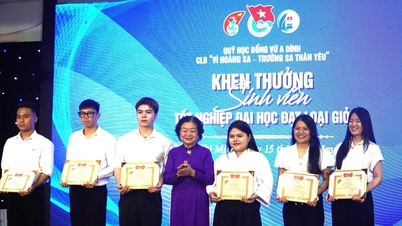

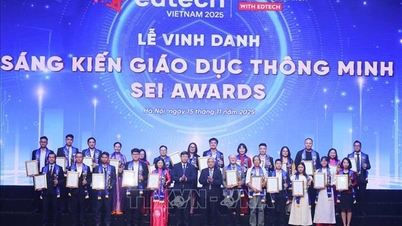

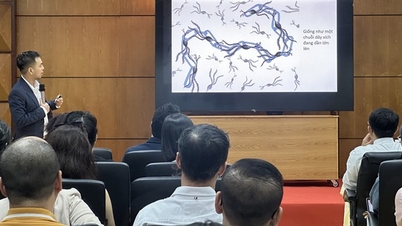



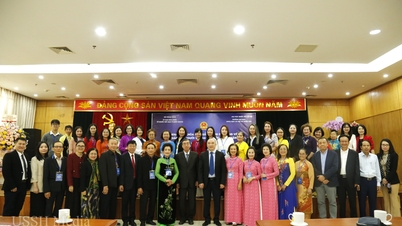








![[Photo] Prime Minister Pham Minh Chinh meets with representatives of outstanding teachers](https://vphoto.vietnam.vn/thumb/402x226/vietnam/resource/IMAGE/2025/11/15/1763215934276_dsc-0578-jpg.webp)
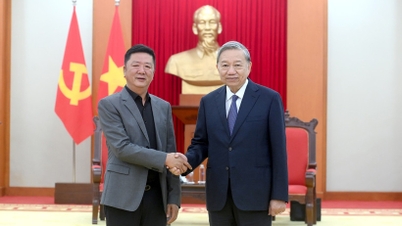
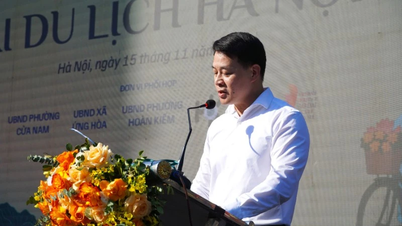
![[Photo] General Secretary To Lam receives Vice President of Luxshare-ICT Group (China)](https://vphoto.vietnam.vn/thumb/402x226/vietnam/resource/IMAGE/2025/11/15/1763211137119_a1-bnd-7809-8939-jpg.webp)





































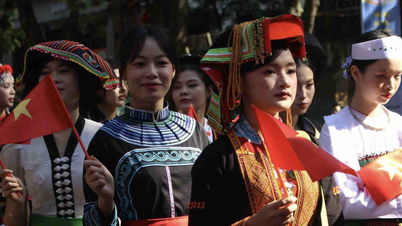




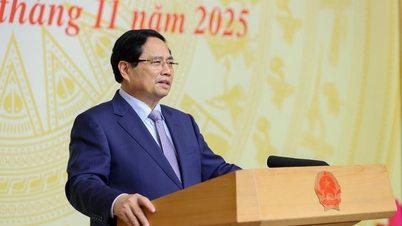
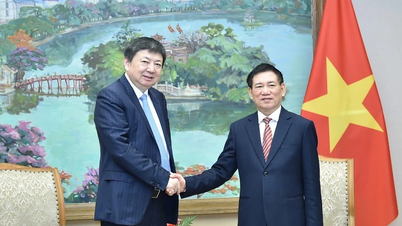





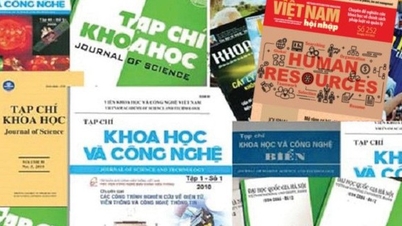
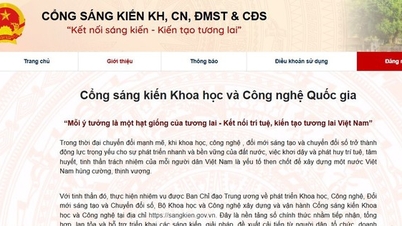





















Comment (0)